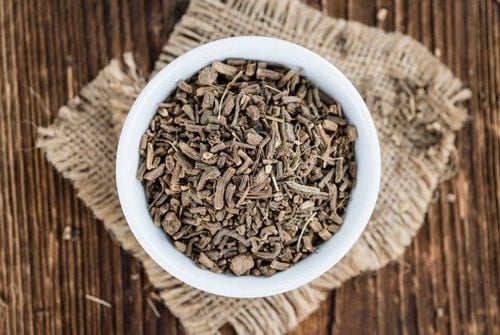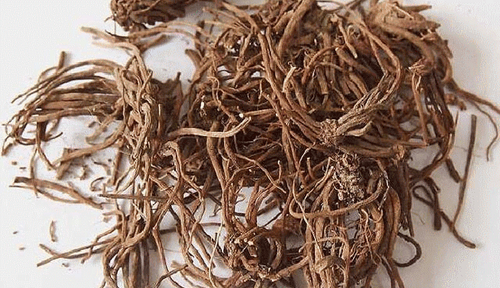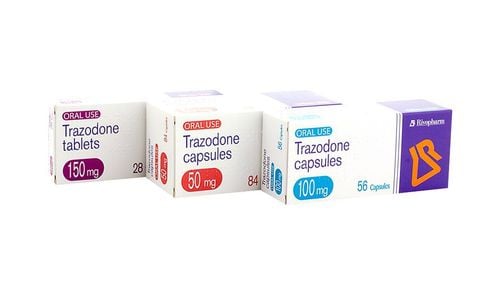Valerian root is an herbal remedy best known for its effective treatment of sleep issues, such as insomnia. However, in certain cases, it may pose various unwanted side effects for health.
1. Overview of Valerian Root
Valerian root is regarded as an effective remedy for improving sleep issues, reducing anxiety, alleviating menopausal symptoms, and providing a sense of relaxation and comfort. This herb has been widely used in medicine for thousands of years and is typically prepared in forms like capsules, liquid extracts, or dried for tea.
Valerian root comes from the herb Valeriana officinalis, which is native to Asia and Europe, as well as some other countries like the United States. Some studies suggest that valerian root is an incredible herbal medicine for treating insomnia; however, it may cause some unwanted side effects.
2. Side effects of Valerian root
2.1. Experiencing nightmares while sleeping
One of the most common side effects of using Valerian root (Valerian) is to create nightmares (vivid dreams) while sleeping.
A study was conducted to investigate the side effects of Valerian and another herb, Kava, which is also used for treating insomnia. Researchers had 24 participants use 4 ounces (120 mg) of Kava daily for six weeks, then took a two-week break, followed by 20 ounces (600 mg) of Valerian daily for six weeks.

As a result, the majority of people using these two herbs did not experience any side effects; however, about 16% of cases experienced nightmares while treating insomnia with Valerian.
The reason valerian can cause nightmares is because it contains essential oils and iridoid glycosides. These compounds can stimulate opioid receptors and produce serotonin in your brain, providing relaxation and combating depression symptoms.
Additionally, some studies have shown that Valerian can increase levels of gamma-aminobutyric acid (GABA) in the brain, a substance that calms the body and reduces nervous stimulation.
Overall, these sedative properties are the main factor in promoting deeper sleep, which can lead to vivid dreams. Therefore, scientists often recommend that individuals prone to unpleasant dreams avoid using Valerian root as it may cause nightmares.
2.2. Heart Palpitations
Heart palpitations refer to rapid, pounding, or irregular heartbeats, often triggered by stress, medications, exercise, or a medical condition. While palpitations are generally harmless, they may become concerning if unfamiliar.
Since the 16th century, Valerian root has been used to treat rapid heartbeats. Ironically, some cases have reported experiencing palpitations as a side effect of using or discontinuing Valerian root. However, these reports are anecdotal and not based on research. Therefore, further scientific studies are needed to identify the specific potential side effects of this herb.
2.3. Dry mouth and stomach pain
Valerian root may cause mild to moderate digestive and oral effects. Using this herb can increase bowel activity, which is why it has been used in Europe for centuries to treat digestive problems like constipation. However, its laxative properties may sometimes cause unwanted symptoms, including diarrhea or stomach pain.
In a 28-day study with 391 participants using various herbs to improve sleep, 18% of those using Valerian root reported experiencing diarrhea and dry mouth.

2.4. Headache and mental disorders
Valerian root, if used for a long time, not only increases headaches but also causes some other brain-related problems, such as irritability, anxiety, and frustration. Some people feel more lethargic in the morning after consuming Valerian, especially at high doses, even though it may help them sleep better. If you experience any symptoms mentioned above, it is advisable to reduce the dosage of Valerian to a more appropriate level.
3. Precautions when combining Valerian root with other medications
Like other herbs, you should exercise caution when using Valerian root alongside other substances or medications. While serious side effects seem rare, Valerian root can interact with the following:
- Antidepressants;
- Alcohol;
- Sedatives, such as sleeping pills, anticonvulsants, and benzodiazepines;
- Cholesterol-lowering drugs (statins);
- Narcotics;
- Certain antifungal medications;
- Antihistamines;
- St. John’s Wort.
Additionally, avoid using Valerian root in high doses or in conjunction with substances with similar effects, such as sedatives or sleep aids.
Combining Valerian with the substances listed above can lead to excessive drowsiness or exacerbate depression. Furthermore, Valerian root may slow down the breakdown of medications in the liver, causing them to accumulate in the body. Children and pregnant or breastfeeding women should also avoid using Valerian root as there is insufficient information about its safety for these groups.

It is important to note that this herb is a dietary supplement and is not intended to replace prescription medications. If you are unsure about using Valerian root, consult a qualified healthcare professional for advice and guidance.
4. Appropriate dosage when using Valerian root
The general recommended dosage of Valerian root for treating sleep problems is 300-600 mg, taken about 30-120 minutes before bedtime. Alternatively, you can use it as a tea substitute, with a dosage of 2–3 grams of dried Valerian root steeped in hot water.
Although these herbs are generally well tolerated by the body, in certain cases their toxicity can cause serious symptoms, including liver toxicity, headaches, chest pain, abdominal pain, or tremors.
Vinmec International Hospital is a high-quality medical facility in Vietnam, with a team of well-trained, experienced doctors and modern medical equipment imported from the U.S., UK, Germany, and Japan. Its facilities are designed to international standards, offering a comfortable environment for patients and ensuring effective treatment.
To register for examination and treatment at Vinmec To arrange an appointment, please call … or make your reservation directly HERE. You may also download the MyVinmec app to schedule appointments faster and manage your reservations more conveniently.
Reference source: healthline.com













